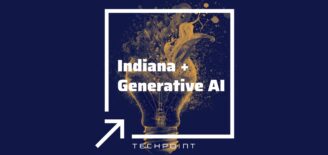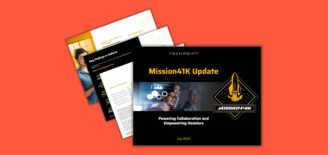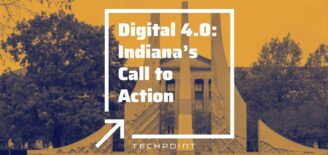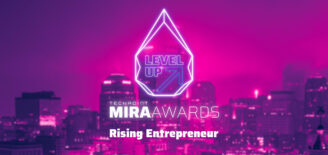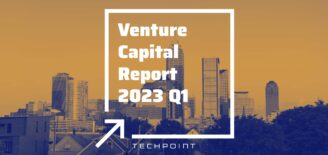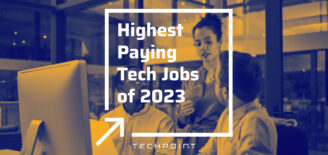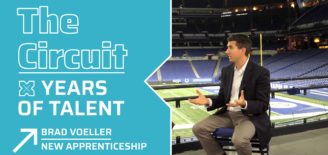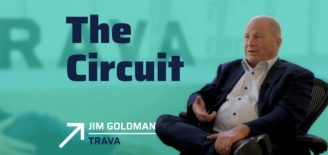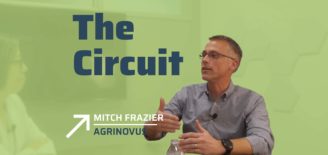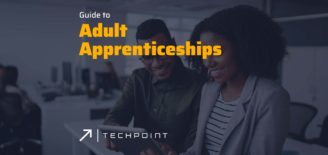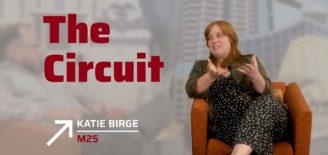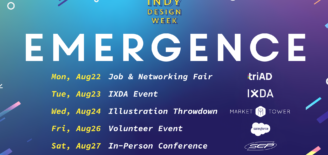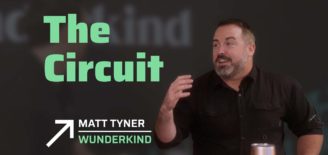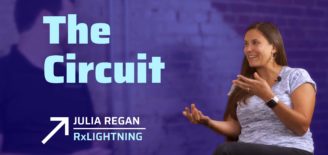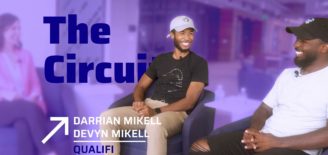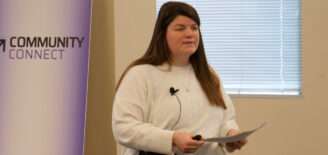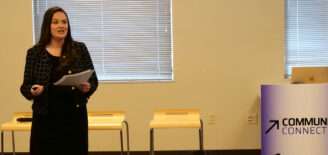IndyPy celebrates 10 years of connecting the Python community
A lot has changed in Indianapolis over the past 10 years. We’ve hosted a Super Bowl, our cultural districts have become nationally recognized food destinations, and tech talent is seeing our Circle City as a destination for both work and play.
Six Feet Up, a Python and cloud consulting group out of Launch Fishers, has been through the transition of Indy as both a cultural and tech destination. After owners Gabrielle and Calvin Hendrx-Parker moved from Silicon Valley to Indiana, they uncovered a need that wasn’t being met by the current tech community and decided to make it part of their business strategy.
That need was about connecting coders who use Python, a type of programming language, with each other to share knowledge, help each other hone their programming skills, and have fun hanging out with like-minded individuals.
Python is currently one of the most popular programming languages in the world and it is the most popular coding language taught in university introductory computer science courses. Python is extremely powerful and fast, can run on multiple operating systems such as Windows, MacOS and Linux, and can support multiple architectures for companies with massive scale — like Google, Yelp, DropBox, Disney and NASA.
Python has historically been more popular in Silicon Valley, the Research Triangle and the Boston area. While the Midwest has long been focused on .NET and Java, Python’s emergence in Indiana has been met with open arms and created the need for a new sense of community.
Six Feet Up’s owners decided to create a community for Python users — named IndyPy — which is now one of the leading national groups promoting the Python programming language and connecting the Python community.
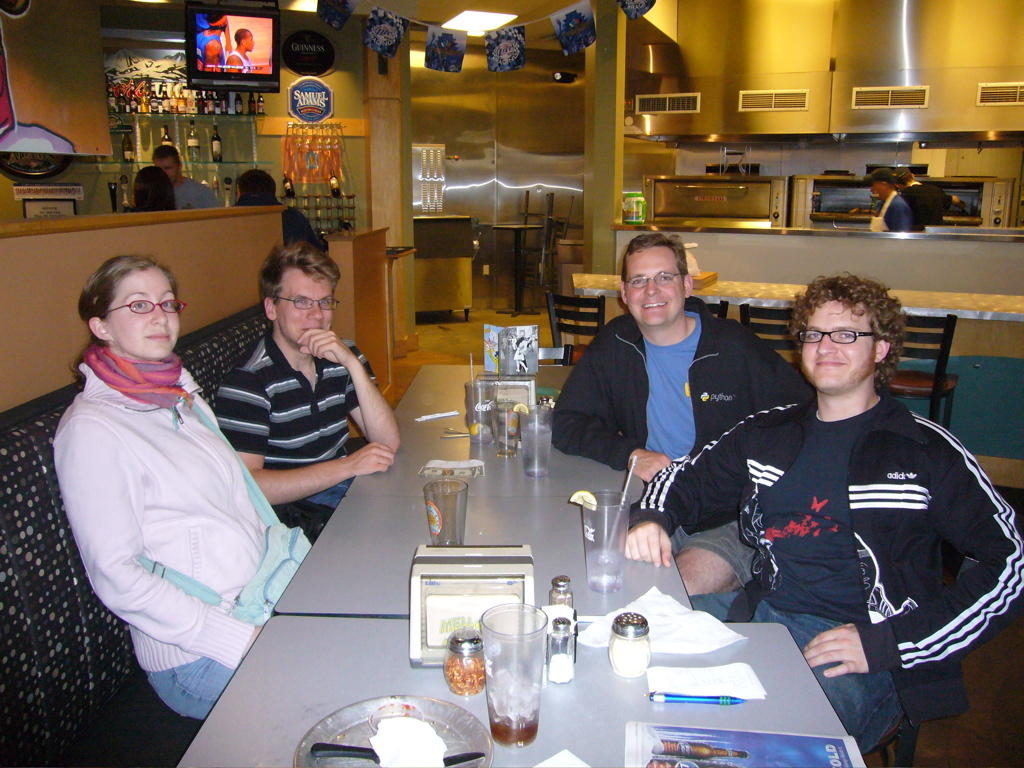
When it was founded in 2007, IndyPy had a mere four attendees. Today, the group has more than 900 registered members and has grown 34 percent in the past year alone. Membership is free and open to everyone.
IndyPy’s two flagship programs consist of monthly meetups and quarterly Pythology mini-conferences. The monthly meetup takes place on the second Tuesday of the month at The Speak Easy in Broad Ripple. A mix of presentations, tutorials, lightning talks and discussions provide everyone from beginners to Python pro’s something new to learn or experience.
One thing that sets IndyPy’s meetup group apart from the rest is their “fish bowl.” Attendees vote to select 3 topics for a panel of five people to ask and answer questions on. Each topic is timed to 10 minutes and the audience must stay quiet unless they “tap out” a current panelist. “Fish bowls are a great way to get people who would normally not speak up to participate in a conversation” states IndyPy co-founder Calvin Hendryx-Parker.
Past notable presentations include:
- Scott Woodall from Ivy Tech showed how to scrape and analyze football players web statistics to put together a fantasy football team. He did it with very few lines of code, which had a big impact on the audience.
- Jeff Spies, founder of Center for Open Science, gave a talk on the importance of transparency and reproducibility of scientific experiments.
- Brian Smith, founder of PyData Indy, explained how to use special Python libraries called Pandas for processing Big Data and generating visualizations to answer specific questions.
- Benjamin Chodroff, CTO of ClearObject (then CloudOne), shared how he automated his own fishtank by hooking up hardware to a RasberryPi computer and using Python, NodeRED, and IBM Bluemix. In addition to the various sensors and controls, Chodroff showed off how he installed webcams to deliver a live stream of the fish in the aquarium.
- Six Feet Up CTO Calvin Hendryx-Parker gave a talk on serverless computing with Lambda on AWS using Python. This is now a very hot topic as it allows to build micro-services without having to manage a fleet of servers.
The Quarterly Pythology events offer multiple experts with short presentations on specific topics, such as Python in Big Data, Django for Beginners, and Python on the Web. Past presenters have included Center for Open Science, SaltStack, ProofPoint and Angie’s List. The next Quarterly Pythology event is on Friday, March 10 and focuses on automating processes with Python. See the speaker lineup and event details here.
IndyPy has not only provided educational resources to the tech community, but also a hiring strategy. Chief technology and information officers, directors of engineering, and vice presidents of product have joined the IndyPy community to find new entry level and experienced talent. Tech-focused businesses can sponsor IndyPy, which helps keep events affordable and accessible to the widest possible audience.
Python continues to dominate and grow in Indiana due to the large finance and insurance institutions housed here for which data analytics is key. As Python continues to join forces for Big Data, it can only mean that more tech talent will be needed to fill the upcoming wave of jobs that will be sure to come.
For a full list of IndyPy meetups and events, visit http://indypy.org.


